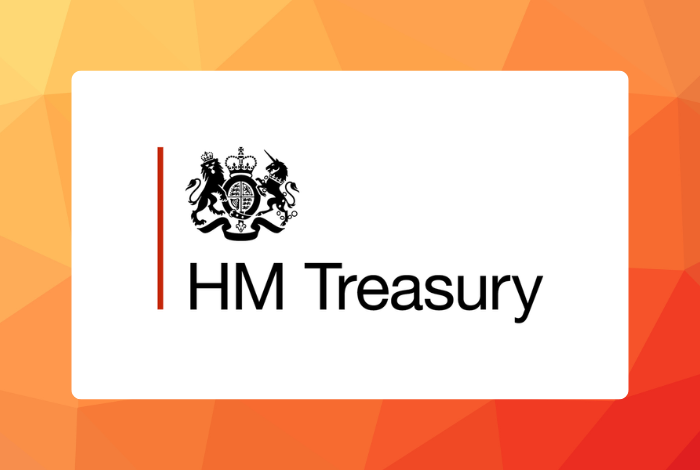CryptoUK (“CUK”, “we”) and its members welcome the opportunity to comment on the FATF’s ‘Explanatory Memorandum and Draft Revisions to Recommendation 16.’ We are writing to respond to:
- Q15 as it applies to Q10 (i.e. the potential impact of what some of these changes might mean to the cryptoasset sector)
CUK is the UK’s self-regulatory trade association representing the digital assets sector. Our members comprise leading companies from across the sector, and uniquely we have an industry-led Travel Rule Working Group.
The group formed to share knowledge and good practices concerning the operational challenges and opportunities posed by the implementation of the UK’s Travel Rule obligations. This group has both been a significant contributor to the UK’s industry guidance, providing input to the Joint Money Laundering Steering Group (JMLSG’s guidance, and will soon publish its Travel Rule Good Practice Guide (TRGPG).
The work that we conducted on TRGPG identified a number of challenges which will not be new to the FATF and include elements of:
- Regulatory fragmentation – that leads to the sunrise issues.
We appreciate that this challenge is not straightforward to fix but more a matter for supervisors to take common sense and pragmatic approaches to supervising the Travel Rule. - Lack of interoperability of Travel Rule solutions.
There are many Travel Rule solution providers in the market and although some work towards greater interoperability is progressing, this end goal is still some time away.
- The absence of Legal Entity Identifiers (LEIs).
Resolving this at a global level would make a significant resolution of the challenges that crypto firms face. Clearly, this is not something that the industry can resolve and we would look to bodies such as the FATF to drive forward and coordinate to deliver a standard approach that might be accepted through future elaboration of FATF’s Recommendation 16. This is, in essence, a straightforward regulatory ‘fix’ that may resolve a lot of industry cost and errors, and with the result of a more effective and efficient means of delivering some of the goals of the travel rule.
CryptoUK comments in relation to FATF’s Explanatory Memorandum
- Q15 (in relation to Q10)
The CryptoUK Travel Rule Working Group supports FATF’s proposal to explicitly require beneficiary financial institutions to check alignment of beneficiary information in payment messages.
In fact, CryptoUK’s Travel Rule Working Group has advocated and helped shape this requirement as it applies to crypto asset businesses in the UK, through the input provided on the Joint Money Laundering Steering Group (JMLSG) guidance.
For context, the Money Laundering and Terrorist Financing (Amendment) (No.2) Regulations (MLTFR 2022) introduced Travel Rule obligations to UK VASPs, on September 1st 2023.
On August 31, 2023, the JMLSG published the final revisions to Sector 22 (cryptoasset providers and custodian wallet providers) in Part II of its guidance. This includes a new Annex I to Sector 22 relating to cryptoasset transfers, which relates to the provisions of MLRs that implement the Travel Rule for cryptoasset transfers in the UK. While not legally binding, the JMLSG Guidance provides a formal base from which UK VASPs can develop tailored policies and procedures for compliance with the Travel Rule.
Henceforth, we refer to the MLTFR 2022 and to the JMLSG Guidance as the “UK Crypto Travel Rule Framework”.
The UK Crypto Travel Rule Framework already explicitly requires beneficiary cryptoasset businesses (CBs) to check alignment of beneficiary information in cryptoasset transfers. The implementation of this requirement in the UK serves as a good reference point for how it can be implemented at FATF level, in view of ensuring that VASPs are able to meet it effectively and efficiently, and that unintended consequences are avoided.
The requirement to check the alignment of beneficiary information under the UK Crypto Travel Rule Framework can be summarised as follows:
- The beneficiary cryptoasset business is required to check whether the “information relating to the beneficiary corresponds with information verified by it under Part 3 (customer due diligence)” (MLTFR 2022, Regulation 64D (1) (b)).
Where a discrepancy is detected, the beneficiary cryptoasset business should consider making enquiries about the discrepancy (MLTFR 2022, regulation 64D (2) (b)).
- The JMLSG Guidance defines more granularly how these requirements can be operationalised by CBs:
- CBs are able to take a risk based approach when assessing discrepancies (paragraph 24, JMLSG Guidance) – similar to FATF’s position that the required ‘alignment’ is not an exact match.
- In case a material discrepancy is detected, the beneficiary CB should consider notifying the originator CB.
- Relevantly, the JMLSG Guidance suggests how the procedure of checking beneficiary information alignment may interact and affect the underlying transaction authorization process:
The CB of the originator may consider executing the transfer after the CB of the beneficiary has checked that the beneficiary information corresponds with the information verified by it (JMLSG Guidance, paragraph 18).
This suggestion is underpinned by the specific characteristics of crypto transactions. Settlement of crypto transactions is immediate and irreversible. Hence, if the discrepancy is detected only after the originator executes the transfer, it may not be possible to meet the goal of preventing a fraudulent or illicit transaction. Therefore, complying with the requirement to check beneficiary information alignment before the execution of the crypto-asset transfer by the originator VASP is the most operationally efficient way of achieving its goals (i.e. you avoid any need to reverse a transaction due to a mismatch of data, which is a timely process, and requires additional checks and balances – of course, subject to any sanctions risk that may require a different action).
However, paragraph 18 suggests that this approach is taken only if it does not unduly impact the time required to complete the transaction. This caveat is critical due to the state of Travel Rule adoption in crypto transactions but also for the diversity of business models and risk appetite in this dynamic sector. In many cases, the beneficiary VASP is not able to receive the required information, check it against their records and communicate whether discrepancies were detected (either because Travel Rule requirements do not yet apply in their jurisdiction, or because they use a different and non-interoperable messaging protocol). Hence, requiring the originator VASP to necessarily wait for this process to have taken place before executing the transaction would have a significant negative impact on their customers. In addition, some VASPs may build in operational timelines to receive a confirmation from the beneficiary VASP, and decide to proceed with the transaction if no confirmation is received within those timelines to avoid unduly delaying the transaction.
Borrowing from the UK Crypto Travel Rule Framework described above, we propose that the FATF considers the principles below when defining how the obligation to check alignment of beneficiary information applies to the virtual asset sector:
- Notifying the prior institution in the payment chain in case material discrepancies are detected should be considered as a follow-up action, as it helps achieve the goal of preventing illicit and fraudulent transactions. This principle also applies to other sectors.
- It is important to clarify that, in crypto asset transfers, the goal of the requirement to check alignment of beneficiary information is better achieved if carried out prior to the execution of the transfer. However, this should not be enforced as a strict requirement but rather recommended as a good practice when it does not carry unintended consequences, specifically on transaction speed.
We hope that you find our comments informative and helpful, and we are happy to discuss further either the details of our comments or our TRGPG, either bilaterally or at the next FATF VACG public/private discussion.




